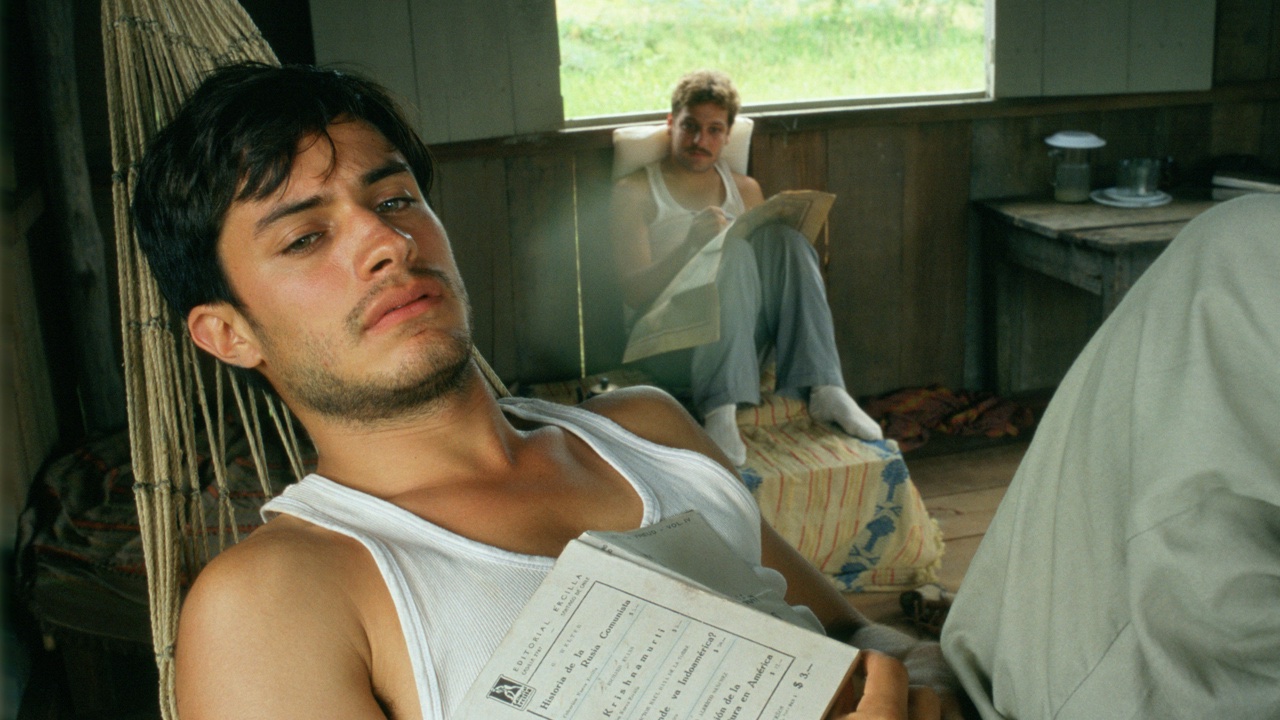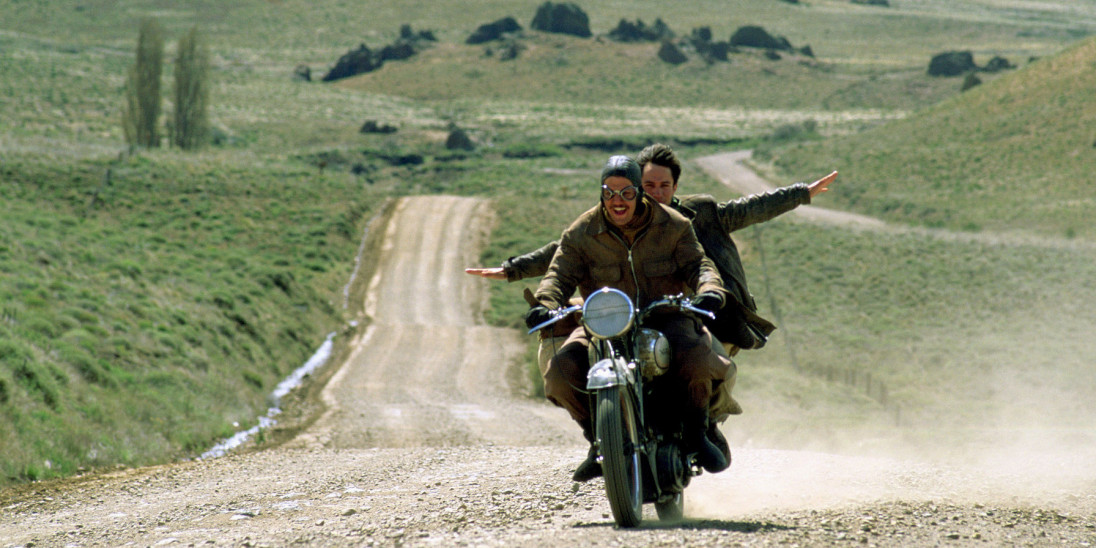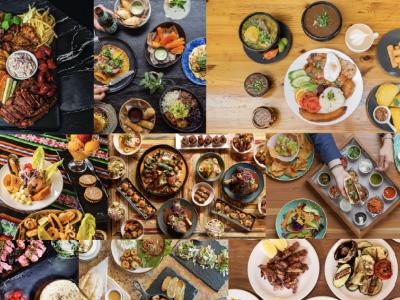A personal favourite, The Motorcycle Diaries by Brazilian Oscar-nominated director Walter Salles, has rightfully found its place in our series. Number seven on our list of "Latin American Films to Watch Before You Die," Diarios de Motocicleta, masterfully adapted from Che Guevara’s very own diary, is a film to watch over and over again: one that gets you lost in the wonderful and wistful world of 1950s Latin America.
Our series’ most modern pelicula yet, filmed in 2004, this BAFTA winner delivers an insight into the life of the future revolutionary icon, an introspective journey with and within the 20-something year old Ernesto Guevara before he became “Che” - leader of the Cuban Revolution.
Some fifteen years prior to meeting Fidel Castro and becoming an everlasting face of freedom, Che Guevara was known as “Fuser” - A middle-class medical student, but first and foremost, a dreamer.
1952, Argentina, Evita Peron, the nations’s spirit leader, is about to be taken away by cancer, while a young Che Guevara is leaving behind the comforts of his Buenos Aires family home accompanied by his good friend and biochemist, Alberto Granado. Little money, a backpack, and idealism are going to guide them through a life-altering journey.
Alberto’s Norton 500 motorcycle, La Poderosa (“The Mighty One”), is ready to cross borders, seasons, and emotional states, taking the two friends through the picturesque Latin American landscape, captured poetically by the masterful cameras of Walter Salles.
The path they choose is an ambitious one, and one that some of us have never stopped dreaming about since first seeing it on the screen. It will initially take the two from Buenos Aires to the wild and wonderful (and cold) Chilean Andes, then across the dry Atacama Desert, and into the green and glorious Peruvian Amazon.

Ernesto ``Fuser” and Alberto plan to arrive in Venezuela on April 2 just in time to celebrate Granado's 30th birthday. Their itinerary is disrupted when the old Poderosa breaks down leaving the two compelled to move at a considerably slower pace, stop frequently, and having to walk long distances.
However, this gives the two friends time to stop to admire the great power of their country, of nature and its people. It gives them the opportunity to meet and spend time with locals, record (and share) stories of daily life, struggle, pain and hunger and of political injustices.
As the journey continues, the two protagonists acquire a deeper comprehension of the inhumane conditions most people live in Ernesto especially is deeply affected by what they see and what they learn.
In Chile, they come across a couple harassed for their political ideals and have to rely on dangerous and poorly-paid jobs like copper-mining in order to survive. In Peru, among the spectacular ancient Incan ruins of Machu Picchu, they meet indigenous communities pushed to the margins of society as the modern world “advances.” They meet poor and tired labourers, children, elderly people all forced to work in terrible conditions
The two friends talk about their ambitions for revolution; through peaceful means, Granado advocates, Guevara promptly responds, "I have a better dream, a revolution that does not use firearms? It will never be successful."
In Peru, the Argentinians volunteer at the San Pablo leper colony. There, Guevara witnesses the division first hand; the staff live on one side of a river, while the lepers live on the other. Guevara, already the rebel, chooses not to follow the rules, refusing to wear the rubber gloves. Instead, he shakes hands with the lepers and interacts with them as an equal, much to the nuns’ disbelief.
 At the end of the film we experience Ernesto, slowly moulding into Che, affirming his Marxists revolutionary impulses by giving a political birthday speech.
At the end of the film we experience Ernesto, slowly moulding into Che, affirming his Marxists revolutionary impulses by giving a political birthday speech.
Guevara's (and the viewer’s) perspective on the world and his place in it are fundamentally altered. The impoverished lifestyles, child labour, and the overall condition of the “unlucky” portion of society leave a clear mark in Ernesto’s journey, one that he will then carry with him for the rest of his life. One that the man who will later become the face of the Cuban Revolution, the Che, will try to combat, from Cuba to the Congo, until his death, age 39, by the hands of the Bolivian Army.
"I'm thinking about the immortality of the revolution." - Che Guevara















